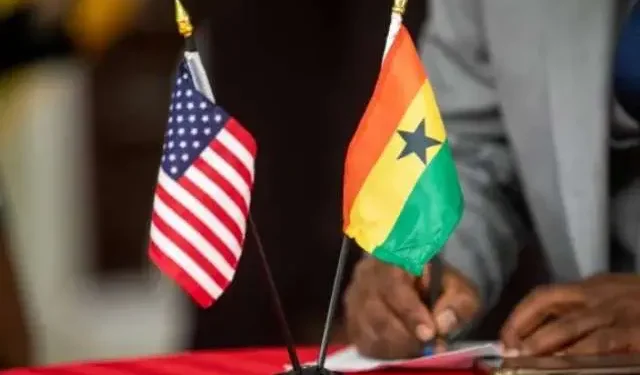Ghana in Trade Talks With US Over Tariffs and Renewal of AGOA, Says President Mahama
Ghana has entered negotiations with Washington over tariffs imposed under the Trump administration and the future of a key US-Africa trade pact, President John Mahama said on Wednesday, describing the outcome as critical for the country’s export prospects.
Speaking at the Jubilee House during the commissioning of newly appointed ambassadors and high commissioners, President Mahama confirmed that his government is in discussions with US officials regarding the 15 per cent tariffs that currently affect some Ghanaian exports, as well as the renewal of the African Growth and Opportunity Act (AGOA).
The landmark US legislation, which allows qualifying African nations duty-free access to American markets, has underpinned trade flows between the two regions since its inception in 2000.
“I also wish to inform you that negotiations are ongoing with regard to the trade tariffs of 15% and the renewal of AGOA, which was a zero per cent tariff on African nations,” President Mahama said. “Those negotiations are still ongoing. I urge you as envoys to check this clarity whenever questions arise.”
The president urged Ghana’s new envoys to play an active role in shaping the country’s global reputation, arguing that diplomacy extends beyond formal negotiations to perception management and national branding.
“Diplomacy involves more than just negotiation; it also encompasses managing perceptions and safeguarding your nation’s reputation. Your foremost responsibility is to tell Ghana’s story with conviction and credibility,” he said.
President Mahama portrayed Ghana as a stable democracy with a track record of peaceful transitions, open for trade and investment, and positioning itself as a hub for technology, creative industries and tourism.
The talks come at a sensitive moment for Ghana, which is seeking to bolster non-traditional exports and attract foreign investment as it navigates a challenging macroeconomic landscape. A decision on AGOA’s renewal, which is due to expire in 2025, is expected to have significant implications for Ghanaian exporters of textiles, agricultural products and manufactured goods.







